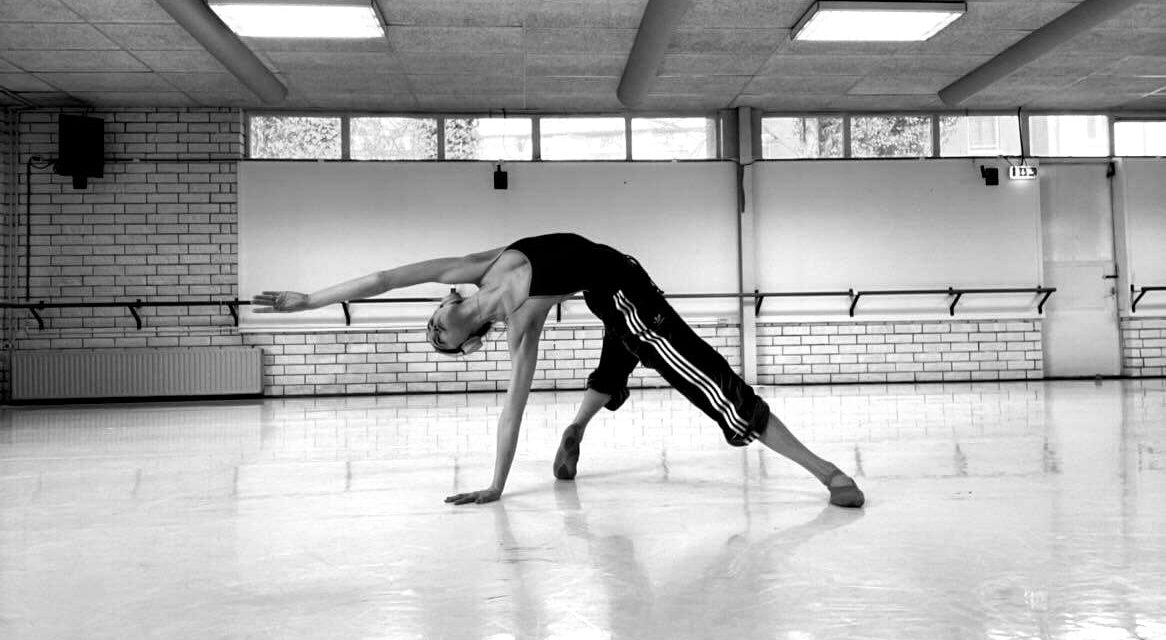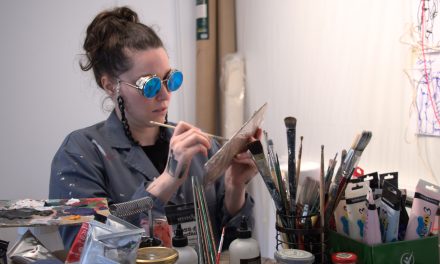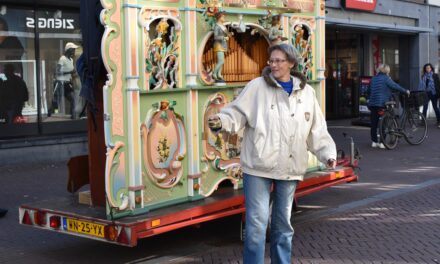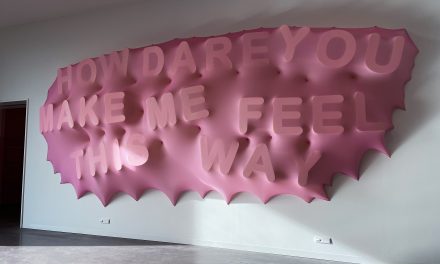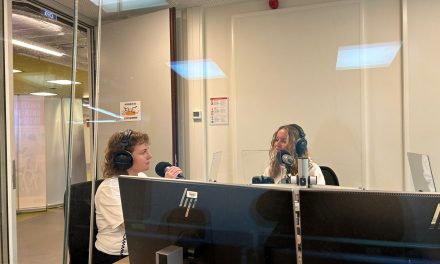Roos Englebert is a professional dancer at Introdans- a dutch dance company that is based in Arnhem, the Netherlands. This year, Introdans celebrates its 50 year anniversary with colorful shows all around the Netherlands. Roos takes us into her world and explains how dance can change lives- positively and negatively.
Roos grew up with dance: ‘‘When I was three years old I started to dance because I was just a very energetic child. My mom was like, okay, something needs to get out. So then I started with ballet. And then with nine years old, I was at the Academy for dance in the Hague, where I am from as well.’’ When she discovered dance, it was not even a question of whether to continue, as she explains: ‘‘It was never a question not to dance because it always felt like a passion. I think that’s with a lot of dancers. There’s never a question not to do it.’’
Passion or not- the dance industry is not as developed as one might think. The pressure is immense and can impact dancers intensely – their mental and physical health can be influenced. Roos explains ‘‘ It’s just the way you are treated that makes it tough. And that’s not only in this company because Introdans is quite good. If you compare it to, especially classical companies, this is quite modern. We can speak up for ourselves, but we don’t. It’s just the hierarchy. You basically cannot speak up for yourself. This world is not made for me, because I just want to speak up for myself when I have to. Because you live in a bubble your whole life. Because you only dance. And people say what’s good and what’s not good, then you’re going to believe that. You see yourself in a mirror every day and you’re going to see that something is not right, because people say it’s not right. And if you start at such a young age, you are naive. I’m actually now dancing with a bruised bone. I was in the hospital because I thought it was broken. And I did the shows anyway. So I did the shows on painkillers.’’
However, there is light at the end of the tunnel. Roos puts the negative sides of ballet into perspective:‘‘ If I really go back to what it means to me, it’s just being free. Just letting your emotions go. And you are with yourself and you can just shine on stage. It’s very pure. If my holiday is too long, I’m very nervous and irritated when I wake up. I really only wake up at the ballet bar. I really don’t see and feel myself if I don’t do that.’’
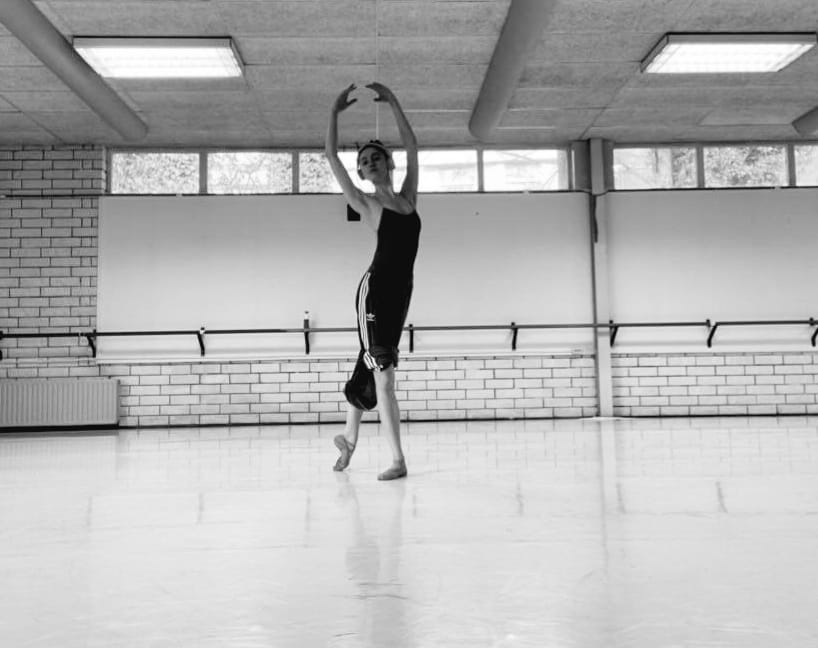
Photo by: Roos Englebert
After all, dance means more than just feeling free. To Roos it means to grow as a person: ‘‘Dance is my everything. It’s my life. Because you just have to give everything, otherwise you cannot do it. I think it’s very good for your development. The hard-working and discipline. I have that from my family because I’m from a butcher’s family. So we’re very tough. Dance is super positive and super creative to grow up with. And you look at things in a different way. You analyze people and art better. You can grow as a dancer just by learning the steps and doing them. But you can also ask yourself why I do them? How do I do them? You learn to listen to music and to really analyze music because you have to be very on point. You learn about arts because a lot of choreographers are inspired by art pieces, and they give you their knowledge. I really like the program that I’m doing right now because I feel seen when I’m on stage and in the public, it feels like they really see me. It is my passion. It is very beautiful. Every negative comment you get during the day is cleared when you’re on stage and you perform. That feeling is why you do it – and then, nothing else matters.’’
A dancer does a lot more than dance. Dancing means being an artist. Roos summarizes: ‘‘Being an artist is always tough. It has to be tough. Otherwise, it cannot be beautiful. It’s like a balanced relationship. Hard work. And then you are on stage and it’s like a reward. You have to get emotional or you have to get to that point of almost breaking down, otherwise, it cannot get to the people.’’
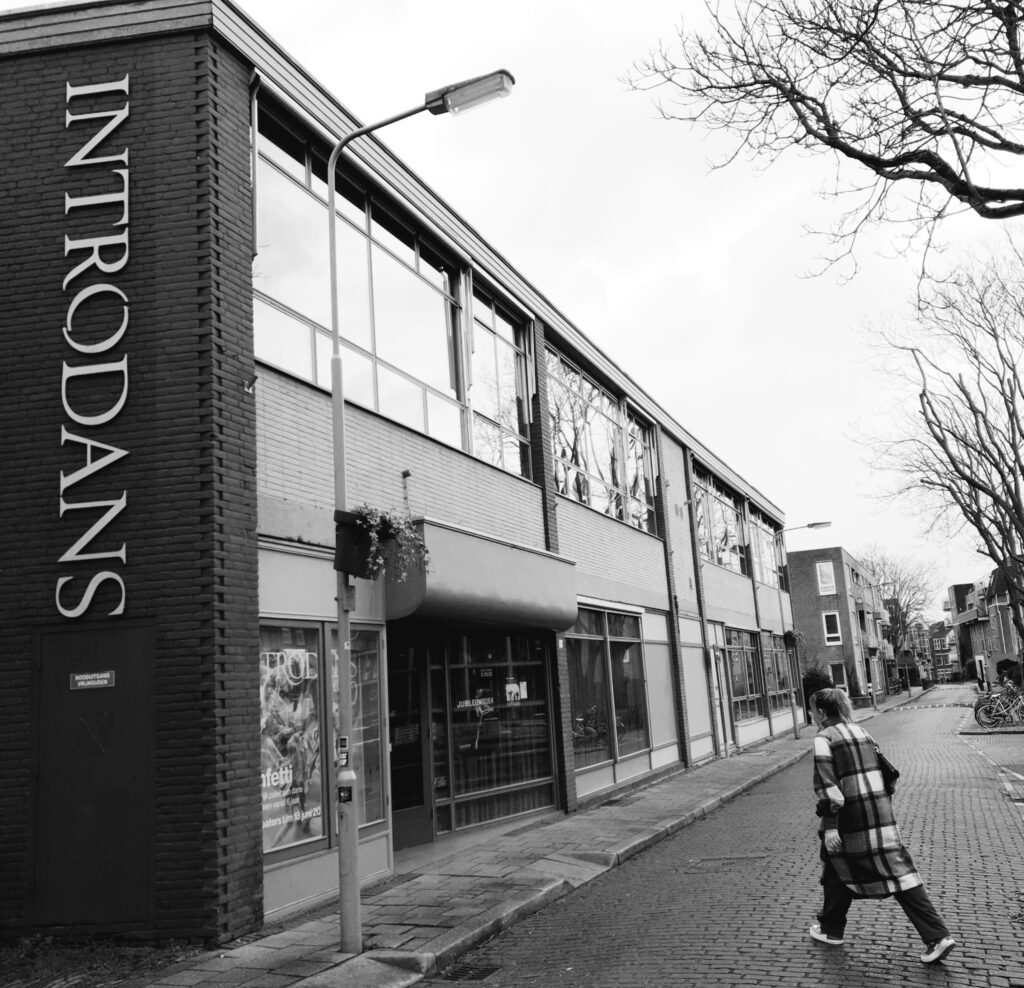
Introdans studio in Arnhem. Taken by: Lena Gildemeister
